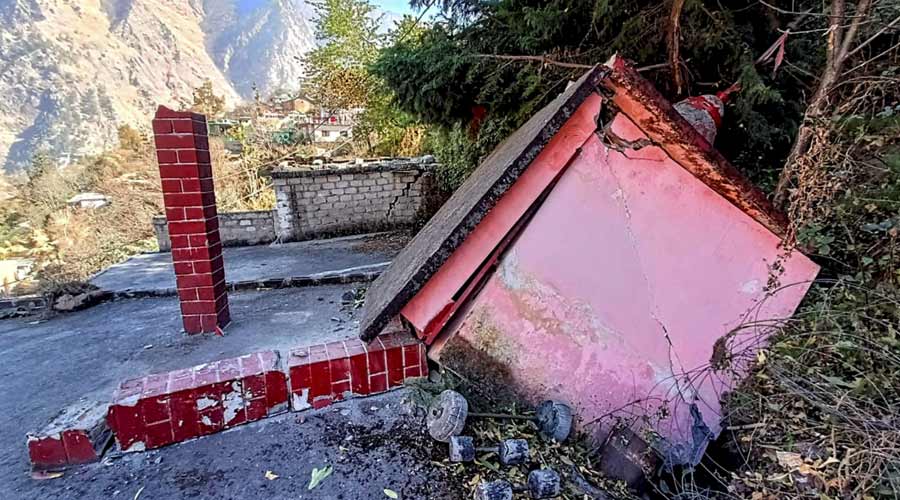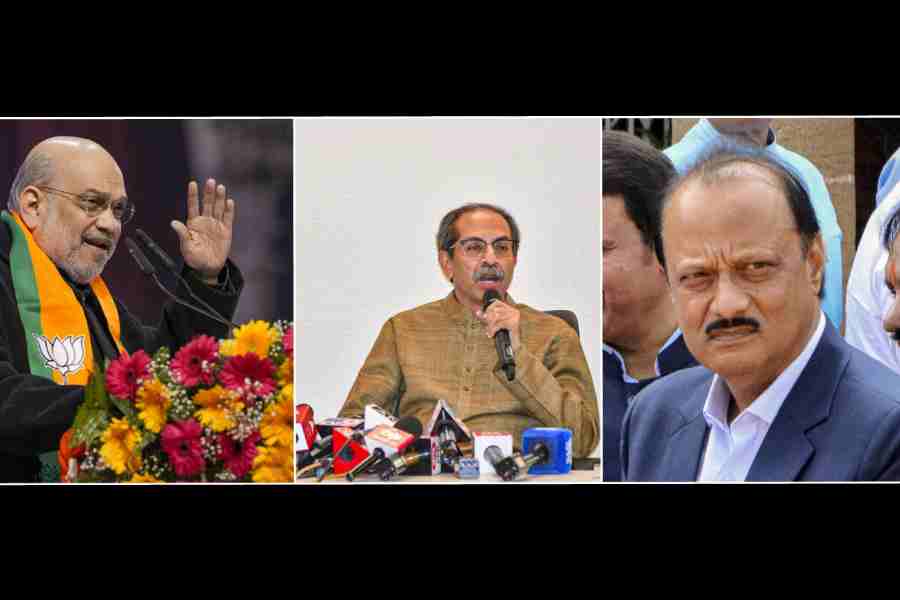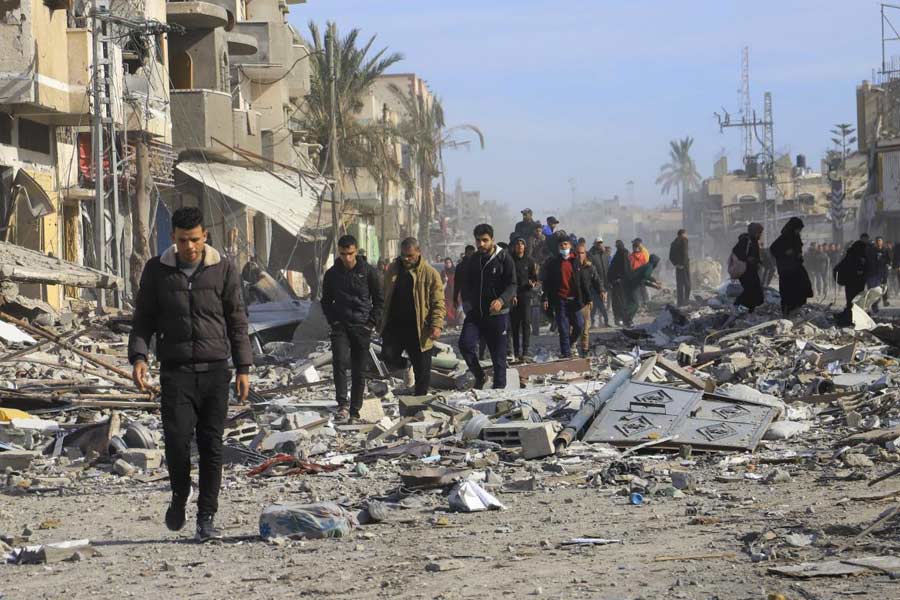Central government agencies and experts are assisting Uttarakhand to prepare plans to deal with the Joshimath situation and the immediate priority is the safety of the people, the Prime Minister's Office said on Sunday after holding a high-level review meeting.
Affected families are being shifted to safe locations, a PMO statement said, noting that Prime Minister Narendra Modi is concerned and has taken stock of the situation with Chief Minister Pushkar Singh Dhami.
One team of the National Disaster Response Force and four teams of the State Disaster Response Force have already reached Joshimath, where people are in alarm due to land subsidence and cracks developing in hundreds of houses.
P K Mishra, the prime minister's principal secretary who held the meeting, stressed that the immediate priority should be the safety of people living in the affected area and said the state government should establish a clear and continuous communication channel with the residents.
The Border Management secretary and members of the National Disaster Management Authority (NDMA) will visit Uttarakhand on Monday and assess the situation A team of experts from NDMA, National Institute of Disaster Management, Geological Survey of India, IIT Roorkee, Wadia Institute of Himalayan Geology, National Institute of Hydrology and Central Building Research Institute will study the situations and give recommendations, the PMO said.
The Uttarakhand chief secretary briefed the PMO about the ground situation during the meeting, they added.
Central government agencies and experts are assisting Uttarakhand to prepare short, medium and long term plans to deal with the Joshimath situation, the officials said.
Immediate efforts should be made to arrest the deterioration in the situation through practical measures that may be feasible, Mishra said.
He said an interdisciplinary investigation of the affected area should be undertaken.
Experts from a range of central institutions— NDMA, NIDM, Geological Survey of India, IIT Roorkee, Wadia Institute of Himalayan Geology, National Institute of Hydrology and Central Building Research Institute should work closely with Uttarakhand in the spirit of “Whole of Government” approach. A clear time-bound reconstruction plan must be prepared and continuous seismic monitoring must be done, he said, adding that a risk-sensitive urban development plan for Joshimath should also be developed.
The review meeting was attended by the cabinet secretary, other senior officials of the central government and members of the National Disaster Management Authority besides the chief secretary and the DGP of the state through video-conferencing. District officials of Joshimath also attended the meeting.
Experts from IIT Roorkee, the Geological Survey of India and the Wadia Institute of Himalayan Geology also participated.
Uttarakhand chief secretary said state and district officials with the support of central experts have assessed the situation on the ground and informed that a strip of land with a width of around 350 meters is affected, the PMO noted.
Residents have been kept in the loop and their cooperation sought. Dhami had visited Joshimath on Saturday to assess the situation on the ground, a day after he directed the immediate evacuation of around 600 affected families.
Dhami said Joshimath is an important place for culture, religion and tourism and all efforts will be made to save it.
Joshimath is the gateway to famous pilgrimage sites like Badrinath and Hemkund Sahib and international skiing destination Auli.
Except for the headline, this story has not been edited by The Telegraph Online staff and has been published from a syndicated feed.










